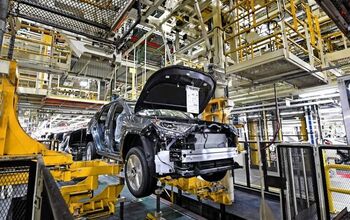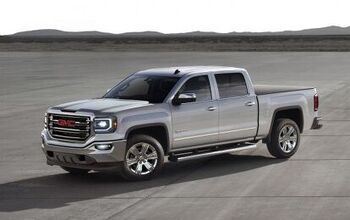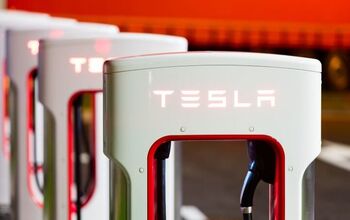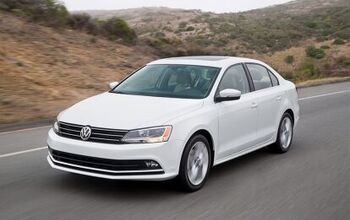Vehicle Recalls Are Down in the U.S., but Not Everyone's Celebrating

Automotive recalls in the United States dropped to the lowest level since 2013 last year. In 2017, domestic recalls fell to 30.7 million — far less than 2016’s record high of 53 million. That’s good news, right?
Probably. The National Highway Traffic Safety Administration demands manufacturers be Johnny-on-the-spot with fixes ever since General Motors’ ignition switch scandal back in 2014. That means it’s either gotten incredibly lax in its duties under Donald Trump’s watch or automakers simply had a better year. While the NHTSA suffered important staff shortages for literally all of 2017 and has seen the current administration pressing for less regulation overall, the recall decline could also be attributed to the Takata airbag inflator situation finally winding down.
However, it’s no secret that the Obama administration wanted to see the safety administration exercising its regulatory muscle. In 2016, automakers issued a record 924 recall campaigns. That number fell to 813 last year. The NHTSA has also neglected to impose new vehicle safety fines since Trump took office and been operating without permanent leadership for more than 13 months.
To some extent, this comes down to the Trump administration’s efforts to streamline the federal bureaucracy. But the confirmation process for presidential appointments can also be lengthy. The White House has repeatedly accused Democrats of dragging things out in response to so many nominees coming from the business world, rather than government. Regardless, many have become concerned with the National Highway Traffic Safety Administration’s lack of activity.
“This agency is in a stall … They are not going to do very much without political leadership,” said Joan Claybrook, a former NHTSA administrator and prominent consumer advocate, said last fall.
That may be true, however the fact remains that Takata’s airbag recall ultimately affected 42 million U.S. vehicles — with the vast majority cropping up before 2017. It would be presumptuous to accuse the NHTSA’s lax enforcement year as the sole cause of the safety recall decline. However, it might also be unwise to assume it isn’t allowing automakers to fly a few defects under the radar.
[Source: Reuters]

A staunch consumer advocate tracking industry trends and regulation. Before joining TTAC, Matt spent a decade working for marketing and research firms based in NYC. Clients included several of the world’s largest automakers, global tire brands, and aftermarket part suppliers. Dissatisfied with the corporate world and resentful of having to wear suits everyday, he pivoted to writing about cars. Since then, that man has become an ardent supporter of the right-to-repair movement, been interviewed on the auto industry by national radio broadcasts, driven more rental cars than anyone ever should, participated in amateur rallying events, and received the requisite minimum training as sanctioned by the SCCA. Handy with a wrench, Matt grew up surrounded by Detroit auto workers and managed to get a pizza delivery job before he was legally eligible. He later found himself driving box trucks through Manhattan, guaranteeing future sympathy for actual truckers. He continues to conduct research pertaining to the automotive sector as an independent contractor and has since moved back to his native Michigan, closer to where the cars are born. A contrarian, Matt claims to prefer understeer — stating that front and all-wheel drive vehicles cater best to his driving style.
More by Matt Posky
Latest Car Reviews
Read moreLatest Product Reviews
Read moreRecent Comments
- ToolGuy The only way this makes sense to me (still looking) is if it is tied to the realization that they have a capital issue (cash crunch) which is getting in the way of their plans.
- Jeff I do think this is a good thing. Teaching salespeople how to interact with the customer and teaching them some of the features and technical stuff of the vehicles is important.
- MKizzy If Tesla stops maintaining and expanding the Superchargers at current levels, imagine the chaos as more EV owners with high expectations visit crowded and no longer reliable Superchargers.It feels like at this point, Musk is nearly bored enough with Tesla and EVs in general to literally take his ball and going home.
- Incog99 I bought a brand new 4 on the floor 240SX coupe in 1989 in pearl green. I drove it almost 200k miles, put in a killer sound system and never wish I sold it. I graduated to an Infiniti Q45 next and that tank was amazing.
- CanadaCraig As an aside... you are so incredibly vulnerable as you're sitting there WAITING for you EV to charge. It freaks me out.


































Comments
Join the conversation
Clickbait, with no facts, just speculation. Thank you, St. George, for bringing at least a few facts into the picture. As a quasi-native of the DC swamp, I'm pretty familiar with how this works. The political appointees set the policy direction for the agency, the career people carry it out. Since most career people at regulatory agencies are regulators at heart, in the absence of contrary directions from the top, they're gonna regulate. So, in the absence of new leadership at the top, it's pretty unlikely that the career folks at NHTSA have given up regulating.
Recall rates dropping from all time highs doesn't necessarily mean enforcement is lacking. Recall rates started rising up in the 2007 era. If we're "the lowest since 2013", we're still higher than we used to be. Historically, 2013 was a very high year for recalls. Keep things in perspective. Recall rates are still very high and may simply be stabilizing.